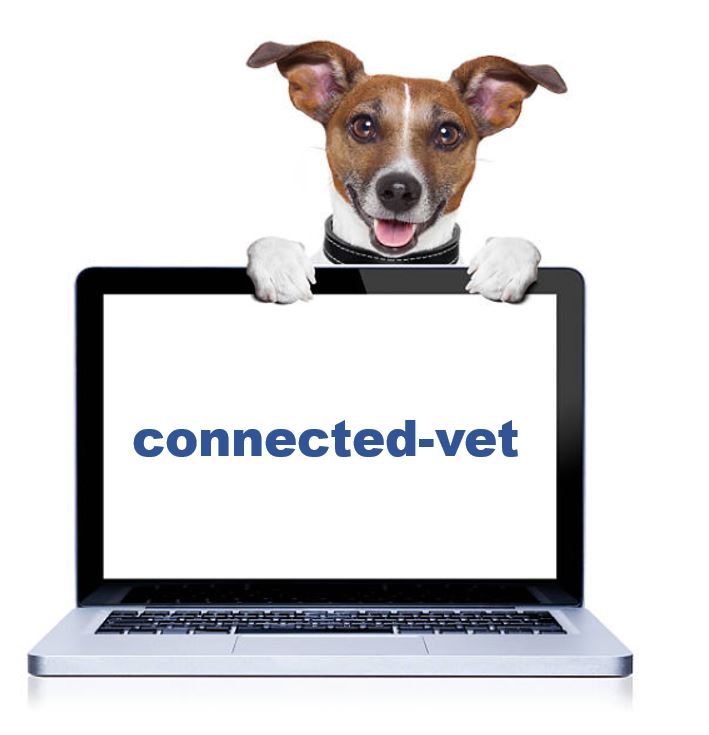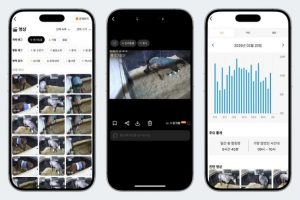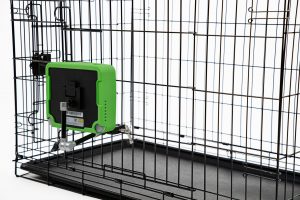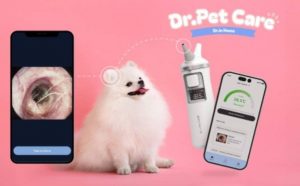Pet owners usually spare no expense on their animals — they give their pets nutritious food, engage pet-sitting services, send their pets to wellness examinations and more. This is why the pet care industry in Asia Pacific recorded an 11.8% CAGR from 2016 to 2021 and was valued at US$27.1 billion ($36 billion) in 2021, according to Euromonitor International.
However, there are still gaps in the region’s pet care market, especially in the area of preventive healthcare. Richard Nilsson realised this when he struggled to find wearable tech for his eight-year-old Maltese, Cesar, in Singapore.
Therefore, he decided in 2020 to develop MyPetGo, a pet wearable health monitor. “However, I told myself that [MyPetGo] must feature additional dimensions to the pet health monitors currently available in the Western markets. It can’t be synthetic and needs to be original and with a high degree of innovation,” says the CEO and founder of MyPetGo.
Founded on the belief that all pets deserve to live happier, MyPetGo is a wearable that provides functional and accurate health and well-being tracking for dogs and cats.
Weighing 35g, the lightweight yet heavy-duty wearable measures activity levels, detects behavioural patterns and records vital signs. It also uses artificial intelligence (AI) to quickly detect irregularity in the pet’s data and immediately notifies pet owners of potential issues through the MyPetGo mobile app. Nilsson shares with DigitalEdge more about MyPetGo.
How does MyPetGo differentiate itself from other pet health monitors?
MyPetGo is not yet another “location and activity” tracking wearable, but the first-of-its-kind “health and wellness” monitor that adds the missing dimensions while taking the guesswork out of pet parenting.
While the focus is on health and wellness, the true differentiator is the “next-step recommendations” on what the pet parent can do with the data insights and, more importantly, who can help them when they are in a pickle.
In other words, we offer pet owners the ability to stay on top of their pet’s vitals like heart rate variability (HRV), pulse rate variability (PRV), respiration rate (RR), ambient and body temperature and an array of behavioural traits.
When a rate of change is discovered, the pet owner receives a push notification with the data on the possible cause and the appropriate actions they can take. If it is a health matter, the application can connect the user to their trusted vet or help set up a teleconsultation.
Essentially, we offer understandable data as the first dimension, a next-step recommendation as the second dimension, and a bridge to a service/product in our marketplace as the third dimension. This is the MyPetGo ecosystem. Our marketplace has five main verticals: Insurance; pet commerce; televet/mobile-vet; on-demand service providers — such as walkers, sitters, pet boarding, trainers, and groomers; and specialised pet food.
What were the difficulties you faced when developing MyPetGo?
Every issue imaginable. Since we built MyPetGo during the pandemic, there were lockdown challenges such as factory lockdown and closure issues, as well as logistical problems with sending prototypes back and forth between Hong Kong, China, Singapore and Vietnam. It was also difficult to build a distributed team and source for components as they got scarce during the pandemic.
Additionally, there was no reference point as we are using new technologies such as AI, and MyPetGo is an entirely new type of offering. In other words, there is nothing to measure against or to look at for clues.
As such, building the tech across hardware (the monitor), software (applications), and firmware (what speaks between the hardware and software) has been a significant challenge, especially when it comes to finding the right team members to execute and innovate the product. Unlike a typical software company, we needed highly specialised team members, such as firmware specialists, data scientists, and those who could do hardware and wearable engineering as well as address software matters.
We managed to overcome all those challenges thanks to our grit and determination. The team is also aligned with our mission and vision, giving us the superpower to remain patient during near-death experiences to help pets and their parents live longer and more joyful lives together.
Can you share how your business has grown so far?
As a B2B2C offering, we have a few selected critical partners across the globe. This includes a major pet insurance company in the US, a pet e-commerce company in Australia and a technology distributor for the Latin America region.
2023 is our first actual operational year. But since our launch in December 2022, we have gotten a few thousand users across 20 countries, such as the US, Canada, Sweden, Singapore, Australia, Spain, Germany, France, the UK, and Ireland. We aim to have 15,000 monitors in use by the end of this year, and our revenue to be in the ballpark of $1.5 million to $2 million.
What can we expect next from MyPetGo?
We have started the development of the second generation (Gen2), which will see two versions: One big and one small. The tinier version will cater to the smallest of dog breeds, like Chihuahuas and kittens. Gen2 will see an evolution of the first generation and be more powerful. We intend to build out the ecosystem with more features and functions.
We are also in the midst of setting up European and American offices. I’m relocating to Spain to be closer to Europe and the US/Canada, which is the largest pet care market, with better access to the missing ecosystem in Asia of investors, partners and users. For the latter, we are shifting our Asia-first approach to more mature markets as it makes better business sense. There is no need to build a new category as it already exists.
What will it take for pet tech to flourish in Singapore and Asia Pacific?
It’s a mix of things, but I believe we need some real pet tech investors that can help to fund pet tech ventures. If investors don’t want to invest, entrepreneurs will be unable to launch pet tech ventures.
We need strategic pet companies like Nestlé Purina Petcare and Mars Inc with Leap to have a presence beyond Europe and the US. A pure-play pet tech accelerator catering to Asia-based pet tech ventures is also required.
Additionally, we need the support of the community and pet parents to truly understand that caring for your pet’s health and wellness is a vital part of being a responsible pet parent
More summits and exhibitions will help create more traction across Asia too. The big ones are in Europe and the US at the moment. I believe the pet tech market in Asia Pacific will eventually become what the Western markets are today. In other words, investors and entrepreneurs have a tremendous opportunity to get in early on the action.
Source : https://www.theedgesingapore.com/digitaledge/technopreneurs/how-mypetgo-helps-take-guesswork-out-pet-parenting






